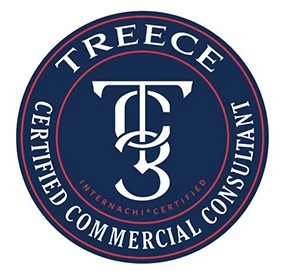


New England CRE Inspections
- Blog
- Services
- Tax Appraisal Appeal
- Construction Development
- Campus Asset Advisors
- Building Revenue Assessment
- Hotel Renovation Consulting
- Property Condition Assessment
- Construction Project Management
- Environmental Site Assessment
- Capital Needs Assessment
- Capital Reserve Study
- Cost Segregation Study
- Triple-Net Lease Inspection
- Equity PCA
- Facility Condition Assessment
- Commercial Building Inspection
- Grease Trap Inspection
- Property Portfolio Review
- Commercial Energy Audit
- Commercial Inspection Training
- …
- Blog
- Services
- Tax Appraisal Appeal
- Construction Development
- Campus Asset Advisors
- Building Revenue Assessment
- Hotel Renovation Consulting
- Property Condition Assessment
- Construction Project Management
- Environmental Site Assessment
- Capital Needs Assessment
- Capital Reserve Study
- Cost Segregation Study
- Triple-Net Lease Inspection
- Equity PCA
- Facility Condition Assessment
- Commercial Building Inspection
- Grease Trap Inspection
- Property Portfolio Review
- Commercial Energy Audit
- Commercial Inspection Training


New England CRE Inspections
- Blog
- Services
- Tax Appraisal Appeal
- Construction Development
- Campus Asset Advisors
- Building Revenue Assessment
- Hotel Renovation Consulting
- Property Condition Assessment
- Construction Project Management
- Environmental Site Assessment
- Capital Needs Assessment
- Capital Reserve Study
- Cost Segregation Study
- Triple-Net Lease Inspection
- Equity PCA
- Facility Condition Assessment
- Commercial Building Inspection
- Grease Trap Inspection
- Property Portfolio Review
- Commercial Energy Audit
- Commercial Inspection Training
- …
- Blog
- Services
- Tax Appraisal Appeal
- Construction Development
- Campus Asset Advisors
- Building Revenue Assessment
- Hotel Renovation Consulting
- Property Condition Assessment
- Construction Project Management
- Environmental Site Assessment
- Capital Needs Assessment
- Capital Reserve Study
- Cost Segregation Study
- Triple-Net Lease Inspection
- Equity PCA
- Facility Condition Assessment
- Commercial Building Inspection
- Grease Trap Inspection
- Property Portfolio Review
- Commercial Energy Audit
- Commercial Inspection Training

Cost Segregation Study
A Cost Segregation Study is a tax-savings measure for business owners and building owners. The IRS allows building owners to depreciate their building assets for tax purposes. A "cost segregation study," "cost segregation analysis," or "cost allocation study" are common names for this investigative service.
The IRS Cost Segretation Guide Technique Guide directs taxpayers to a course of action for depreciating their assets, and notes that a specialist with experience in the engineering and/or construction fields is best. At WBTreece Consultants, we have experience in these and multiple overlapping areas. "A quality study identifies the preparer and always references their credentials, experience, and expertise in the cost segregation area."
Taxpayers must utilize the correct method and appropriate recovery time for each asset or property possessed in order to compute depreciation for Federal income tax purposes. Property, whether purchased or built, frequently comprises of a variety of asset kinds with various recovery times. To accurately calculate depreciation, property is often divided into different parts or asset groupings with the same recovery times and placed-in-service dates.
This process is straightforward when the real cost of each separate component is provided. However, when there are only lump-sum costs available, cost estimation procedures would be needed to "segregate" or "allocate" expenses to specific property components (e.g., land, land improvements, buildings, equipment, furniture and fixtures, etc.). It also allows for 80% or 100% bonus depreciation, depending on the year.
For the survey technique, the expert conducts a site examination and makes a list of every part of the property. The cost segregation professional will next send a formal request for pricing information to the contractor or subcontractors. How accurate the pricing information is for each component will depend on how long ago the job was completed.
Read more about best practices for Cost Segregation Studies.

How the Cost Segregation Study Works
Start to Finish
1Request
Ask us for an estimate of tax savings.
2CPA Consultation
We meet with your CPA.
3Proposal
We deliver a written proposal.
4Site Visit
We schedule and perform the site visit.
5Review and Verify
We compile, write, and review the study.
6Acceptance
Client and CPA accept, with any needed follow-ups.
View the IRS Cost Segregation Audit Technique Guide
Tax Savings Guidelines for Business Owners and Building Owners
© 2022-2025 WBTreece Consultants New England
*All assessments are performed under private trust arrangements.*


